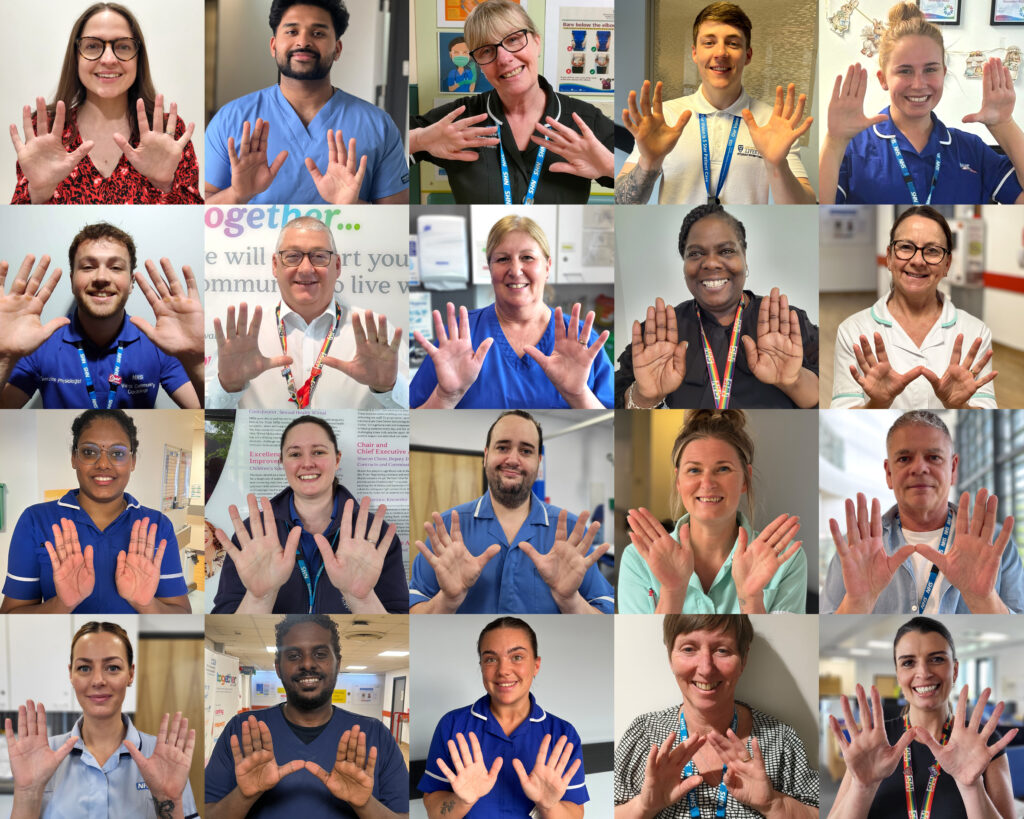This year, the World Health Organization (WHO) marks 17 years of World Hand Hygiene Day. WHO’s message is clear: Save lives. Clean your hands.
This is a stark reminder of the importance of hand hygiene and how it is everyone’s responsibility to practise effective hand hygiene.
Colleagues from Wirral Community Health and Care NHS Foundation Trust (WCHC) and Wirral University Teaching Hospital (WUTH) have teamed up to promote this year’s World Hand Hygiene Day. Here are colleagues across clinical and corporate teams, helping to spread our message:

We have shared these photographs across our social media channels (links at the bottom of this article) with the slogan All Clean Together. This reminds us that we all have a role to play in hand hygiene.
Effective hand hygiene, practised at the right time and in the right way, remains one of the most important measures to protect patients, the public, colleagues and ourselves from infections.
Hand Hygiene facts. Did you know…
- Alcohol gel hand rub should not be used after going to the toilet if you or someone you care for has diarrhoea. Instead you should wash your hands with soap and water.
- Germs can survive for up to three hours on your hands
- The average person touches their face 23 times per hour, making hand hygiene essential in helping prevent germs from entering the body through the eyes, nose and mouth.
- The average person washes their hands after going to the toilet, for just six seconds. For effective hand hygiene we should be spending at least 20 seconds washing our hands.
Visit the NHS website for advice on how to wash your hands effectively. Remember, you should wash your hands:
- after using the toilet or changing a nappy
- before and after handling raw foods like meat and vegetables
- before eating or handling food
- after blowing your nose, sneezing or coughing
- before and after treating a cut or wound
- after touching animals, including pets, their food and after cleaning their cages
Follow WCHC and WUTH on social media:
Facebook:
Instagram:
For more information on infection prevention and control, visit our IPC Digital Hub, where you will also find more information on hand hygiene.